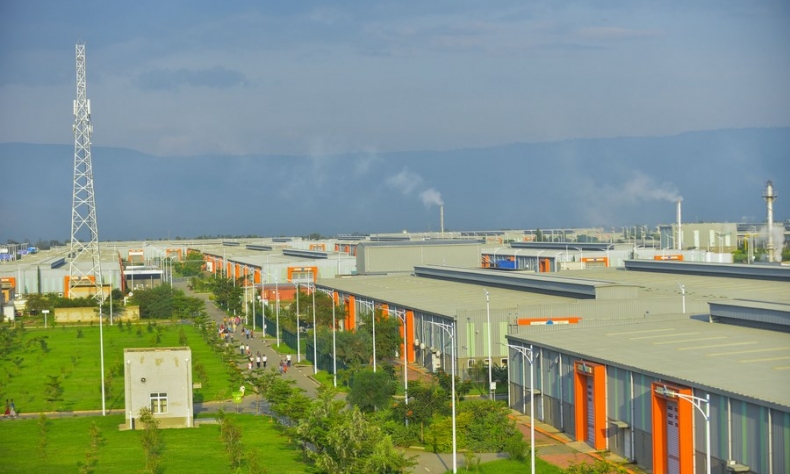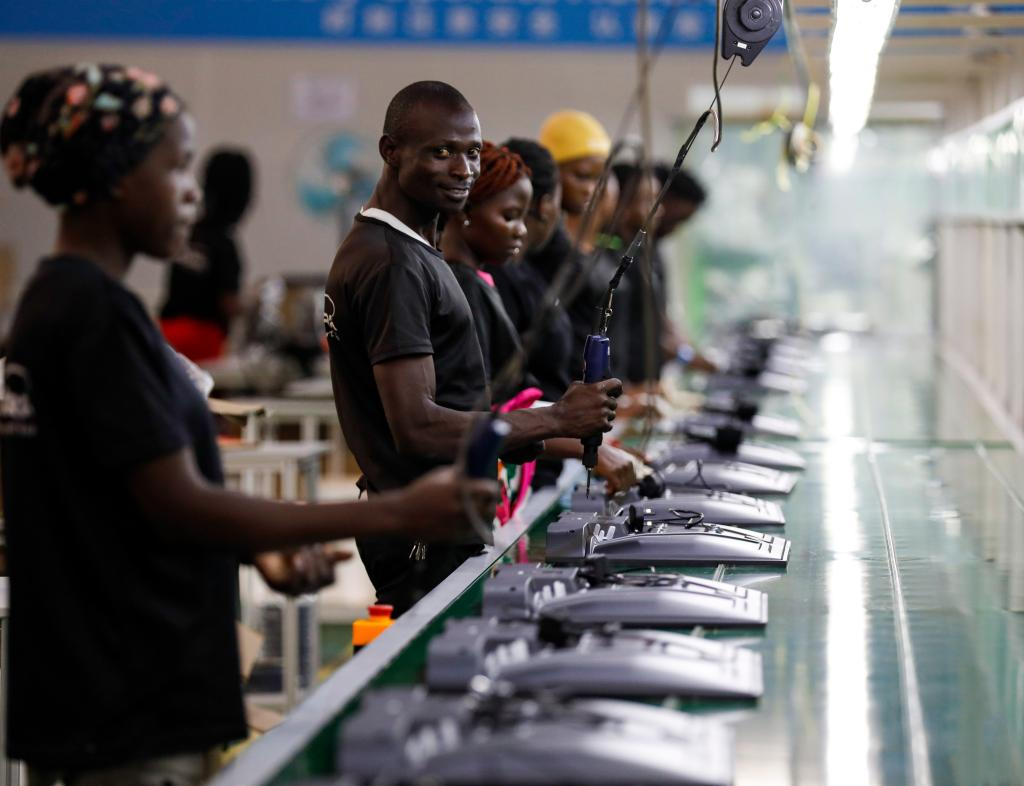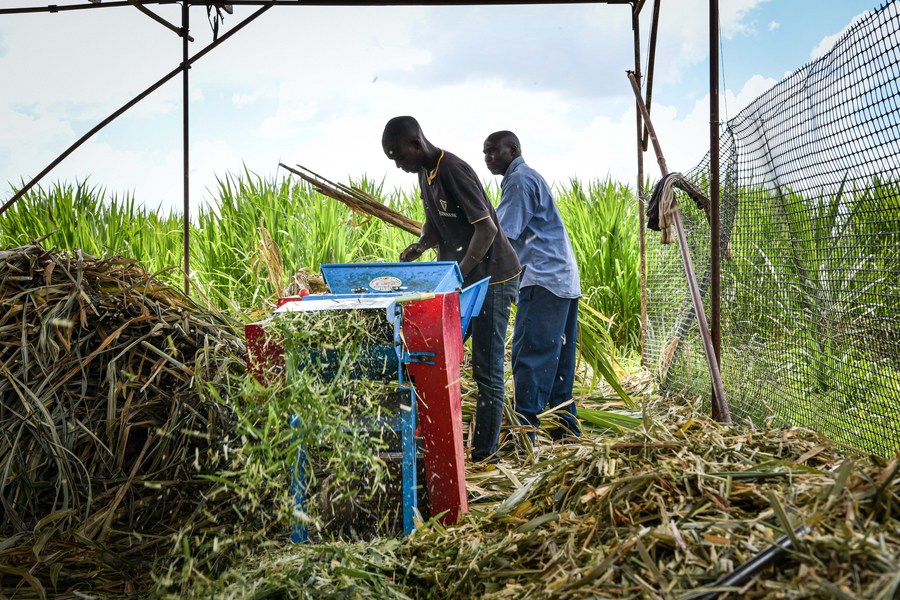New Drivers of Development

China’s reform and opening up has benefitted Africa in multifarious ways, particularly in terms of industrialisation, agricultural modernisation and human resource development.
Joaquim Chissano, former President of Mozambique, has said that Africa has gained much from China’s economic development, particularly due to its reform and opening up policy. China inspires African nations in their quest for national renewal and creates new development prospects through mutually beneficial cooperation. Since the establishment of the Forum on China-Africa Cooperation in 2000 and the launch of the Belt and Road Initiative in 2013, exchanges between the two sides have intensified. Platforms such as the China-Africa Economic and Trade Expo and the China International Import Expo have further strengthened this momentum.
What concrete benefits does China’s opening up bring to its African partners, particularly in terms of industrialisation, agricultural modernisation and human resource development? ChinAfrica invited three experts to share their views on this topic.
Towards sustainable industrialisation
Tang Xiaoyang
Professor, Department of International Relations, Tsinghua University
In the 21st century, Africa is entering a new phase of industrial development. Despite a nominal increase in manufacturing, growth remains slow compared to the Asia-Pacific region. In response, China is proposing initiatives to strengthen cooperation on manufacturing capacity in Africa.
The first initiative involves the construction of industrial parks on the African continent by Chinese companies to promote large-scale industrial production. These parks bring similar industries together and promote vertical cooperation by providing infrastructure and services. One example is the Zambia-China Trade and Economic Cooperation Zone, which was set up by China Nonferrous Metal Mining Group in Zambia to process minerals, with companies from the group and local companies providing supporting services.
Another important initiative is to strengthen the link between infrastructure and industrial investment in Africa. Building infrastructure is a challenge due to the scale of investment required and the long payback periods. To improve efficiency and profitability, China and African countries are developing interconnected industrial projects, such as the Addis Ababa-Djibouti Railway, which links infrastructure, industrial parks and special economic zones. China Merchants Group is also building a new port in Djibouti to handle the growing traffic.
Finally, Chinese industrial investment in Africa focuses on the production of goods adapted to the local market with the aim of promoting sustainable industrialisation. Chinese companies are able to capitalise on the growth opportunities in the African market, and set up factories to produce a variety of everyday consumer goods. This reduces transportation costs, meets local needs and boosts market demand. These made-in-Africa products do not replace imports, but complement the market and create a new dynamic.

The path to modernising agriculture
Wang Heng
Deputy Director, Institute of African Studies, Zhejiang Normal University
Agriculture is one of the most important pillars of the African economy. China is continuously strengthening its support and cooperation with African countries to promote agricultural modernisation, higher incomes for farmers and food security.
China is gradually increasing its investments in the agricultural sector in Africa. By the end of 2020, more than 200 Chinese companies were active in 35 African countries, investing a total of $1.11 billion in various areas such as farming, animal husbandry and agri-food processing. These investments have strengthened the agricultural sector by improving its structure, maintaining the food chain, boosting market demands and raising the level of mechanisation.
Between 2020 and 2022, trade in agricultural products between China and Africa increased from $7.67 billion to $8.92 billion, with an annual growth rate of 7.8 percent. China is facilitating market access for African products such as fish, honey, sesame, peanuts, soybeans, corn, coffee and fruit by creating “green trade corridors.” E-commerce platforms such as the online shopping festival for high-quality African products have enabled more than 200 kinds of specific products from African countries to reach Chinese consumers, contributing to poverty alleviation in Africa and meeting the diverse needs of the Chinese people.
In this new era of China-Africa cooperation, China is supporting the modernisation of agriculture by sharing its technologies with Africa. A total of 19 Chinese provinces have set up agricultural technology demonstration centres in 23 African countries to introduce and adapt advanced Chinese agricultural technologies, and have completed more than 300 trial programmes.

A beacon of hope for young Africans
Wang Jinjie
Deputy Secretary General, Institute of African Studies, Peking University
Inadequate education and high unemployment are major challenges in Africa. With growing population and changing economic sectors, it is essential to improve vocational skills to tap the demographic potential. Chinese companies investing in Africa often face difficulties due to a lack of skilled labour, which affects their productivity. To solve this problem, they are working with higher education institutions in enhancing vocational and technical education to bolster human capital in Africa.
In Ethiopia, Chinese companies located in industrial parks are promoting technology transfer in labour-intensive industries such as textiles and garments by hiring and training local workers. The Luban Workshop partners with Ethiopian universities and uses their technical and entrepreneurial centres to provide students with practical skills and business management training.
In Angola, Chinese investors are aware of the importance of developing human resources. In addition to the Sino-Angolan scholarship programme, they are establishing vocational schools such as the CITIC BN Vocational School (Angola). These training courses are intended to support economic activity and provide social learning opportunities.
China-Africa cooperation in human resources has evolved from simple knowledge transfer to capacity building and providing solutions. China is improving its international cooperation by taking Africa’s needs into account, investing in education, increasing employment of young Africans, and adopting a knowledge-sharing mentality to achieve common progress in the sci-tech and human resource development fields.
 Facebook
Facebook
 Twitter
Twitter
 Linkedin
Linkedin
 Google +
Google +










